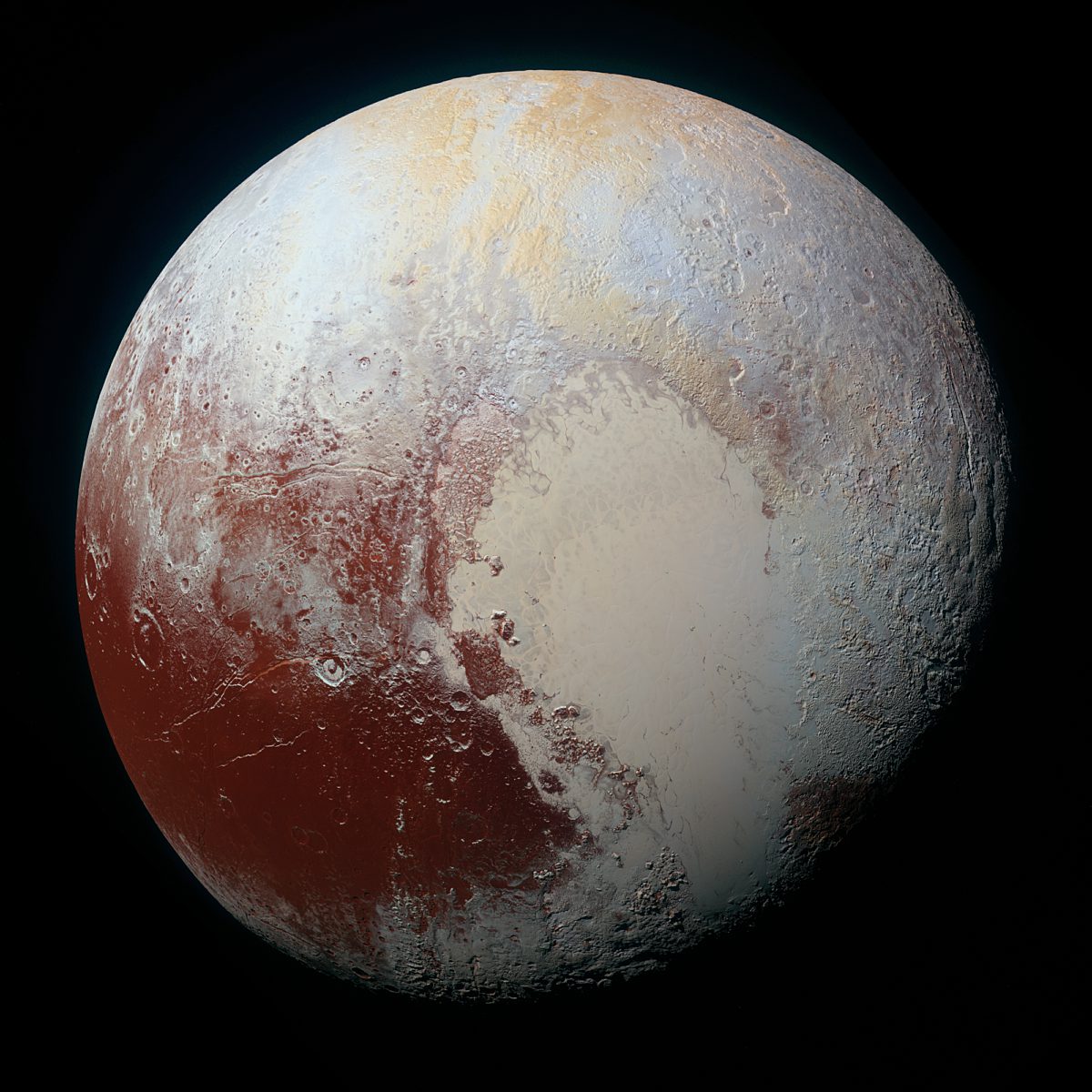Since 2002, Planetary Radio has visited with a scientist, engineer, project manager, advocate, or writer who provides a unique perspective on the quest for knowledge about our Solar System and beyond. The full show archive is available for free.
Search Planetary Radio
The SETI Institute is about much more than the Search for Extraterrestrial Intelligence. President and CEO Bill Diamond of the Institute explains.
The National Geographic Channel’s “Mars” miniseries has begun. Mat Kaplan attended a kickoff for the ambitious docudrama last summer. You’ll hear from series technical advisor Bobby Braun, author of “The Martian” Andy Weir, Cosmos creator Ann Druyan and more.
The Night Sky Guy, Andrew Fazekas, talks about his beautiful new, Star Trek-inspired guide to the real wonders of astronomy.
We take a deep dive into new space legislation working its way through the US Senate. It embraces Mars and NASA's big rocket. But Elon Musk and SpaceX just announced an ambitious new plan to colonize Mars. Does this upset the political establishment? Or will they find a cold reception in the halls of Congress? Also, where does science fit into the politics of space?
The European Space Agency’s magnificent Rosetta mission ended last week as the spacecraft gently touched down on the comet it has revealed.
Planetary Society Digital Editor Jason Davis returns with the story of the ten-day trek across the South he just completed with two Society colleagues.
Space historian and policy expert John Logsdon joins Mat Kaplan for a fascinating conversation about how the US could have lost the race to the moon.
In our third episode, we debate the risks and rewards of tying the future of a Europa mission to the fate of NASA's massive Space Launch System rocket. Also, NASA just announced that the next Mars rover will cost $2.4 billion—$900 million more than initially thought. But the mission is not considered over budget. Why not? Lastly, the U.S. just generated 50 grams of Plutonium-238, the largest amount in nearly thirty years. We celebrate the successful effort to create this critically important, though highly toxic, power source for deep space spacecraft.
She has spent most of her life working toward a bright future for humanity in space, and Lori Garver has lost none of her passion. She visited the Planetary Society for a wide-ranging conversation with Mat Kaplan.
Space art and science fiction joined science fact at the 2016 Contact Conference in Sunnyvale, California. We talk with three well-known visionaries.
In the premiere of this new monthly series we briefly examine the latest move by the House of Representatives in the game of NASA's budget and then discuss what Lockheed Martin's new
Cassini Mission Project Scientist Linda Spilker returns with the latest discoveries at the beautiful ringed planet, its moons and its rings.
Bruce Betts, Jason Davis, Casey Dreier and Emily Lakdawalla gather with Mat Kaplan for a fascinating and informative Planetary Radio Extra year-in-review roundtable discussion.
Our year-end review features the “best of 2015” lists from Jason Davis, Casey Dreier, Emily Lakdawalla and Bill Nye the Science Guy. What’s Up offers planets, a comet, and a nice prize package for the space trivia contest.
Digital editor Jason Davis is a lucky guy. He follows and reports on human spaceflight progress, as well as the progress of the LightSail solar sail, which is about a year from its next flight.
NASA’s Orion spacecraft has taken its first step toward Mars and an asteroid mission. The Planetary Society’s Jason Davis was at the Kennedy Space Center for the December 5 mission.
Spoiler alert. Famed physicist Kip Thorne says you might be able to survive a plunge into a black hole after all! That’s just one molecule of the fascinating science behind the science fiction film he helped create. We’ll talk about the movie and Kip’s new book, “The Science of Interstellar.”
Talking With Mary Roach, Author of Packing for Mars


 Explore Worlds
Explore Worlds Find Life
Find Life Defend Earth
Defend Earth


















